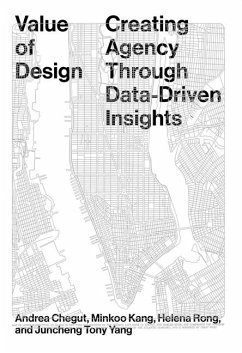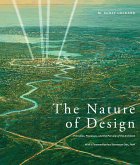In the context of architecture and real estate, the value of design--be it financial or social value--remains largely unmeasured, overlooked, and inadequately researched. By failing to acknowledge the potential of design, we miss opportunities to address the wide-ranging social and sustainability challenges at play today. This book acts as a platform to bridge the gap between design and finance, using empirical research to dissect design into measurable features through data-driven methodologies, with New York City serving as the experimental research site. Novel analytical tools such as AI, machine learning, and natural language processing, along with new forms of data like anonymized mobile phone data, social media data, and image data, unlock new dimensions for gauging the impact of previously immeasurable design elements of the built environment on human behaviors. These novel measurements, when integrated into real estate valuation models, establish a financial benchmark for design, catalyzing a shift in the industry's perspective on the intrinsic worth of design and ensuring that future projects properly account for the qualitative impact of design on economic value and social benefits. As we uncover and quantify the inherent value of design, it becomes possible to persuade key stakeholders--real estate developers, investors, and policy-makers--about the significant returns of thoughtful, sustainable, and human-centric design strategies. In essence, we aim to explore how the amalgamation of design and finance via empirical research and innovative data-driven methodologies can lead to a more integrated and holistic valuation practice.
Hinweis: Dieser Artikel kann nur an eine deutsche Lieferadresse ausgeliefert werden.
Hinweis: Dieser Artikel kann nur an eine deutsche Lieferadresse ausgeliefert werden.








